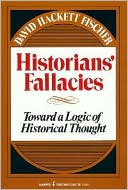Three years ago this month I blogged about a seminar that the gifted OT department at Trinity Evangelical Divinity School gave on this book:
Kenton L. Sparks. God’s Word in Human Words: An Evangelical Appropriation of Critical Biblical Scholarship. Grand Rapids: Baker, 2008.
Kent Sparks himself commented on that blog post 23 times throughout three pages of direct and sometimes intense comments (pages 1 | 2 |3).
I’m grateful that next week a scholarly book-length response comes out:
James K. Hoffmeier and Dennis R. Magary, eds. Do Historical Matters Matter to Faith? A Critical Appraisal of Modern and Postmodern Approaches to Scripture. Wheaton: Crossway, 2012. ![]()











